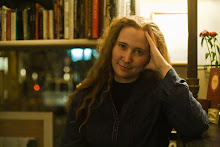It is very easy to criticise other people and it can be very hard to create something yourself. For this reason, I have thus far only ever posted positive commentary- linked to sites that I have enjoyed or that I think have either scientific worth or aesthetic/entertainment value. However, today I am going to make an exception....
I want to talk about "The Sun" newspaper but, more specifically this quote, attributed to Prof Brian Cox, who is “The Sun[‘s] Professor”
“What do science, technology, engineering and maths mean to you? They are known in schools as STEM subjects and for many people they sound like hard work - things only clever people with frizzy white hair and lab coats do. I never felt that way. .... If you are reading this at school, then you can choose to be a scientist, mathematician or engineer as I did. These are careers for everyone, not just a brainy few”
As I see it, there are two problems with this statement. Firstly, it seems to me that this “Science isn’t all geeks, it’s actually cool and fun” message is getting a little tired. It has been expressed, rephrased and re-expressed over and over again in popular science. I am not convinced that anyone really sees science in terms of those “clever people with frizzy white hair and lab coats” stereotypes anymore; quite aside from the fact that the average person sees their local pharmacist or beautician in a lab coat far more often than they will ever see a scientist in one. In fact, the main people who hold and perpetuate those stereotypes are the media themselves, including those parts of the media who are constantly rehashing them, in order to surprise us with the twist that “science is actually interesting”.
The second problem is that the last comment “These are careers for everyone, not just a brainy few” is just plain wrong. This is not a value-judgement, but a simple statement of fact. Can you imagine the sporting equivalent?- “Professional Football is a career for everyone, not just a sporty few” or the musical version? - “A career as a concert pianist is a one open to everyone, not just those with musical aptitude”. ... absurd, aren’t they?
I think this is very telling. There is no shame in not being a professional athlete or musician- in society’s eyes (the child picked last for the team every single games lesson will have a different view of this) but science communicators do think there is shame in not being “brainy” and, like the self-aware racist who never says anything offensive, but sees the whole world through a lens of race, some science popularisers seem to fall over backwards to pretend that science is not difficult and that it is a career open to everyone.
Clearly this isn’t the case. If you are “unintelligent”, you will never be a successful scientist- why pretend otherwise? This does not make an “unintelligent” person (whatever that means and however “intelligence” is assessed) a less worthwhile human being or a less valuable member of society. I would also like to point out, having been a research scientist at Oxford University, myself, that I have met just as many supremely intelligent people outside academia as inside it and some of them had never even finished primary school.
A.A. Milne famously wrote that -
“A third rate mind is only happy when it is thinking with the majority, a second rate mind is only happy when it is thinking with a minority and a first rate mind is only happy when it is thinking”.
For these “first rate minds” – i.e. those that we should be attracting into science and those that will stand the best chance of succeeding in it, the fact that it is “hard” (for which read “stimulating”) is not a bad thing, but a selling point. Lisa Simpson may be a fictitious character, but young (wo)men in her mould are more common than the media realises. A better message is that science is hard- choose a career in science and you will have to work very hard for many years, however, it will be very interesting and this does not mean that you should not pursue it. .
The final point I would like to make is that science is not unique in being difficult, nor is it uniquely difficult. There was talk some years ago of replacing trial-by-jury in certain fraud cases on the grounds that the general public (jurors) simply had not understood the financial intricacies of several high profile cases and that this had had a critical bearing on the outcome of the trial. Despite this, I have never once heard accountants, economists or even lawyers described as “brainy” or “geeks”.
At a complexity theory conference a few years ago, I met a linguistics professor who told me that all his life he had wanted to study “the hardest and most complex subject” he could find and, to that end, he had left a successful career as a nuclear physicist to study linguistics... “Hard” and “brainy” are, at least partly, in the eye of the beholder.
I do feel, in writing this, that I am pointing out the blindingly obvious, but if an influential person, like Prof. Cox is quoted saying such things in a newspaper read by over 7.5 million people every day, this needs to be challenged.
Subscribe to:
Post Comments (Atom)









No comments:
Post a Comment